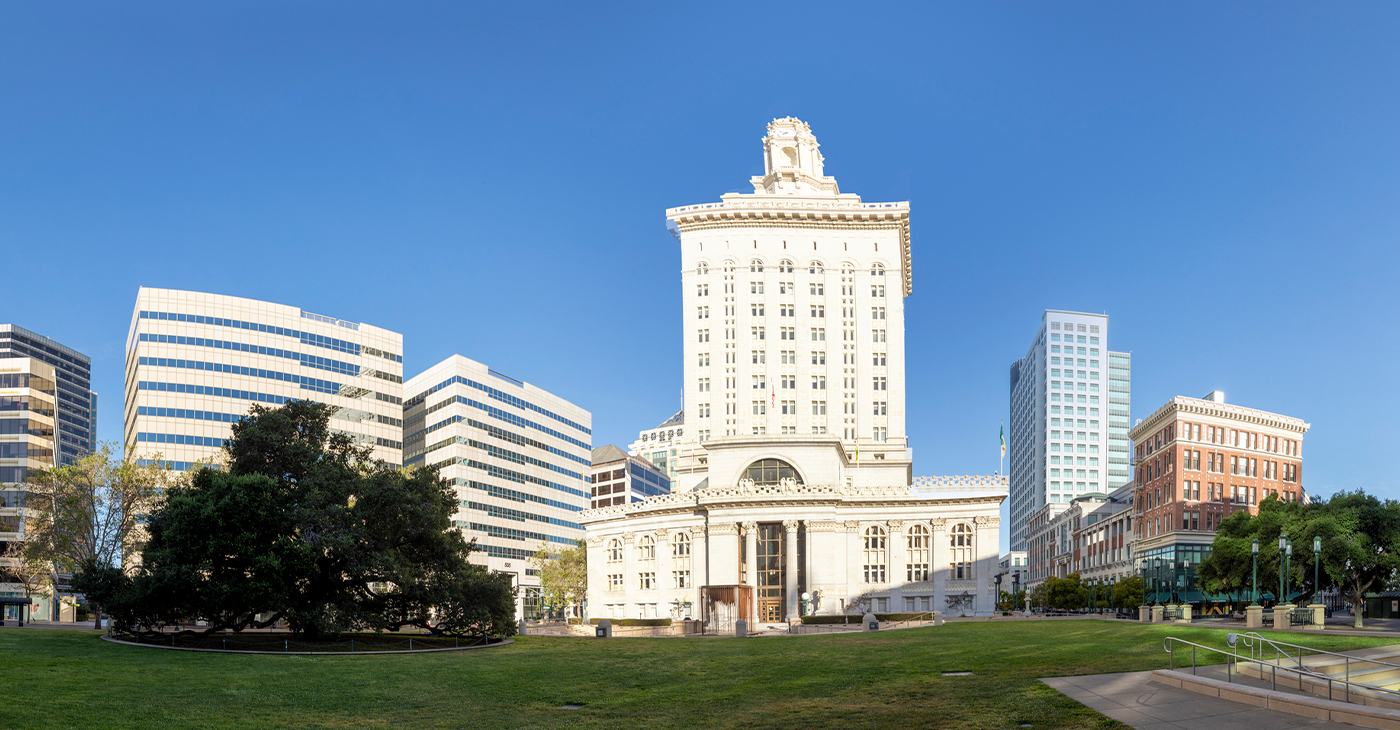Bay Area
Billionaire John Fisher Linked to Privatization of Schools and Port of Oakland
Doris Fisher, worth $2.6 billion, has “focused much of her wealth and resources on building charter schools. She and her late husband Donald donated more than $70 million to … (KIPP schools) … (building) the operation into the largest network of charter schools in the country, with 200 schools serving 80,000 students in 20 states,” according to an article in the website Capital & Main in 2016.

Oakland A’s owner Fisher, a charter school tycoon, is a leader in ‘charterizing’ public schools.
Libby Schaaf connected to Fisher through funding of her education nonprofit, Oakland Promise; she calls for closing schools.
By Ken Epstein
How does real estate development at the Port connect to closing schools? Some political observers say ongoing attempts to displace residents and ‘whiten’ Oakland has two components: one is the snatching of public funds and property to build luxury housing as Oakland A’s owner John Fisher is doing at the Port.
The other part is removing the neighborhood schools attended by generations of Oakland residents and replacing them with charter schools and private schools designed to appeal to more affluent newcomers.
Significant potential allies for school communities fighting closures may be the International Longshore and Warehouse Union (ILWU) and other labor unions at the Port of Oakland, which are under threat from conservative billionaire Fisher’s stadium/real estate project that seeks to take over public land at the Port of Oakland, potentially fatally disrupting the port’s functioning.

John Fisher. Twitter photo.
Fisher has strong connections to local politicians. Mayor Libby Schaaf, an outspoken leader pushing for the Oakland A’s Port real estate project, also publicly backs the closing of Oakland schools. She is a charter school supporter and has significant connections to Fisher, who, along with other charter school billionaires, helps fund Schaaf’s pet nonprofit project, Oakland Promise.
Fisher is not only a baseball team owner, he is also a charter school tycoon. He and his mother Doris Fisher are leaders in the national effort to charterize school districts. According to the Knowledge is Power Program website, Fisher is on the board of directors of KIPP schools, which has charter schools across and the country and a network of 17 charters in Northern California, including a school in West Oakland and another in downtown Oakland.
KIPP’s office in this region is at 1000 Broadway, the same building where the school district has its headquarters.
Who is John Fisher? Politically, he is very conservative. According to Wiki, In 2019, it was revealed that Fisher, together with his mother Doris F. Fisher, as well as brothers William S. Fisher and Robert J. Fisher, had donated nearly $9 million to a dark money group that opposed Barack Obama in the 2012 election.”
According to the website of the KIPP charter school chain: “John Fisher is the executive vice chairman of Pisces Inc., and co-founder of Sansome Partners, which are the family office and investment group, respectively, for the Fisher Family, founders of The Gap. The Doris & Donald Fisher Fund focuses on education reform and charter schools and was founded by Doris Fisher and the late Donald Fisher.
“In addition to serving on a number of corporate boards, (Fisher) helped found and continues to serve on the board of Charter School Growth Fund and Silicon Schools Fund.”
Doris Fisher, worth $2.6 billion, has “focused much of her wealth and resources on building charter schools. She and her late husband Donald donated more than $70 million to … (KIPP schools) … (building) the operation into the largest network of charter schools in the country, with 200 schools serving 80,000 students in 20 states,” according to an article in the website Capital & Main in 2016.
Doris Fisher was listed in 2016 “as the second-largest political donor in California by the Sacramento Bee – and nearly all of her money now goes to promoting pro-charter school candidates and organizations,” according to Capital & Main. “While often labeled a Republican, she gives to Democrats and Republicans alike, just as long as they’re supportive of the charter school movement.”
Some of the financial connections between Oakland Promise — Schaaf’s nonprofit — to Fisher and other charter school billionaires are documented in Oakland Promise’s 2018 annual report.
Donations to Oakland Promise in 2018 by Fisher and Fisher-owned organizations include between $50,000-$100,000 from the Oakland Athletics, between $10,000-$25,000 from the Fisher Family and between $10,000-$25,000 from the Silicon Schools Fund.
Other charter school billionaires supporting Oakland Promise in 2018 were Arthur Rock, between $1 million-$3 million; Rogers Family Foundation, between $100,000- $1 million; Reed Hastings of Hastings Fund at Silicon Valley, between $100,000-$1 million
A locally based pro- charter school organization, Educate78, donated between $100,000-$1 million.
Schaaf is on board with Fisher’s agenda. In a KQED television interview on February 4, she offered “full-throttle support Fisher’s multi-billion-dollar real estate development at the Port,” she said. “This is everything that I as a mayor could want.”
Schaff was also unequivocal in her support for closing 15 Oakland neighborhood schools. She said that Oakland has 80 schools, while comparable districts have 40 schools, implying she supported closing as many as half the public schools in her city.
“I really feel for parents, students, teachers,” she said. “They have every right to be distrustful of this decision. But I believe it is different this time… This is an opportunity to do better for our students, for our educators, our families.”
Activism
Oakland Post: Week of December 25 – 31, 2024
The printed Weekly Edition of the Oakland Post: Week of December 25 – 31, 2024

To enlarge your view of this issue, use the slider, magnifying glass icon or full page icon in the lower right corner of the browser window. ![]()
Bay Area
Glydways Breaking Ground on 14-Acre Demonstration Facility at Hilltop Mall
Glydways has been testing its technology at CCTA’s GoMentum Station in Concord for several years. The company plans to install an ambitious 28-mile Autonomous Transit Network in East Contra Costa County. The new Richmond facility will be strategically positioned near that project, according to Glydways.

The Richmond Standard
Glydways, developer of microtransit systems using autonomous, small-scale vehicles, is breaking ground on a 14-acre Development and Demonstration Facility at the former Hilltop Mall property in Richmond, the Contra Costa Transportation Authority (CCTA) reported on social media.
Glydways, which released a statement announcing the project Monday, is using the site while the mall property undergoes a larger redevelopment.
“In the interim, Glydways will use a portion of the property to showcase its technology and conduct safety and reliability testing,” the company said.
Glydways has been testing its technology at CCTA’s GoMentum Station in Concord for several years. The company plans to install an ambitious 28-mile Autonomous Transit Network in East Contra Costa County. The new Richmond facility will be strategically positioned near that project, according to Glydways.
The new Richmond development hub will include “over a mile of dedicated test track, enabling Glydways to refine its solutions in a controlled environment while simulating real-world conditions,” the company said.
Visitors to the facility will be able to experience on-demand travel, explore the control center and visit a showroom featuring virtual reality demonstrations of Glydways projects worldwide.
The hub will also house a 13,000-square-foot maintenance and storage facility to service the growing fleet of Glydcars.
“With this new facility [at the former Hilltop Mall property], we’re giving the public a glimpse of the future, where people can experience ultra-quiet, on-demand transit—just like hailing a rideshare, but with the reliability and affordability of public transit,” said Tim Haile, executive director of CCTA.
Janet Galvez, vice president and investment officer at Prologis, owner of the Hilltop Mall property, said her company is “thrilled” to provide space for Glydways and is continuing to work with the city on future redevelopment plans for the broader mall property.
Richmond City Manager Shasa Curl added that Glydways’ presence “will not only help test new transit solutions but also activate the former Mall site while preparation and finalization of the Hilltop Horizon Specific Plan is underway.
Alameda County
Last City Council Meeting of the Year Ends on Sour Note with Big Budget Cuts
In a five to one vote, with Councilmembers Carroll Fife and Janani Ramachandran excused, the council passed a plan aimed at balancing the $130 million deficit the city is facing. Noel Gallo voted against the plan, previously citing concerns over public safety cuts, while Nikki Fortunato-Bas, Treva Reid, Rebecca Kaplan, Kevin Jenkins, and Dan Kalb voted in agreement with the plan.

By Magaly Muñoz
In the last lengthy Tuesday meeting of the Oakland City Council for 2024, residents expressed strong opposition to the much needed budget cuts before a change in leadership was finalized with the certification of election results.
In a five to one vote, with Councilmembers Carroll Fife and Janani Ramachandran excused, the council passed a plan aimed at balancing the $130 million deficit the city is facing. Noel Gallo voted against the plan, previously citing concerns over public safety cuts, while Nikki Fortunato-Bas, Treva Reid, Rebecca Kaplan, Kevin Jenkins, and Dan Kalb voted in agreement with the plan.
Oakland police and fire departments, the ambassador program, and city arts and culture will all see significant cuts over the course of two phases.
Phase 1 will eliminate two police academies, brown out two fire stations, eliminate the ambassador program, and reduce police overtime by nearly $25 million. These, with several other cuts across departments, aim to save the city $60 million. In addition, the council simultaneously approved to transfer restricted funds into its general purpose fund, amounting to over $40 million.
Phase 2 includes additional fire station brownouts and the elimination of 91 jobs, aiming to recover almost $16 million in order to balance the rest of the budget.
Several organizations and residents spoke out at the meeting in hopes of swaying the council to not make cuts to their programs.
East Oakland Senior Center volunteers and members, and homeless advocates, filled the plaza just outside of City Hall with rallies to show their disapproval of the new budget plan. Senior residents told the council to “remember that you’ll get old too” and that disturbing their resources will only bring problems for an already struggling community.
While city staff announced that there would not be complete cuts to senior center facilities, there would be significant reductions to staff and possibly inter-program services down the line.
Exiting council member and interim mayor Bas told the public that she is still hopeful that the one-time $125 million Coliseum sale deal will proceed in the near future so that the city would not have to continue with drastic cuts. The deal was intended to save the city for fiscal year 2024-25, but a hold up at the county level has paused any progress and therefore millions of dollars in funds Oakland desperately needs.
The Coliseum sale has been a contentious one. Residents and city leaders were originally against using the deal as a way to balance the budget, citing doubts about the sellers, the African American Sports and Entertainment Group’s (AASEG), ability to complete the deal. Council members Reid, Ramachandran, and Gallo have called several emergency meetings to understand where the first installments of the sale are, with little to no answers.
Bas added that as the new Alameda County Supervisor for D5, a position she starts in a few weeks, she will do everything in her power to push the Coliseum sale along.
The city is also considering a sales tax measure to put on the special election ballot on April 15, 2025, which will also serve as an election to fill the now vacant D2 and mayor positions. The tax increase would raise approximately $29 million annually for Oakland, allowing the city to gain much-needed revenue for the next two-year budget.
The council will discuss the possible sales tax measure on January 9.
-

 Activism4 weeks ago
Activism4 weeks agoOakland Post: Week of November 27 – December 3, 2024
-

 Activism2 weeks ago
Activism2 weeks agoButler, Lee Celebrate Passage of Bill to Honor Congresswoman Shirley Chisholm with Congressional Gold Medal
-

 Activism2 weeks ago
Activism2 weeks agoPost News Group to Host Second Town Hall on Racism, Hate Crimes
-

 Activism2 weeks ago
Activism2 weeks agoDelta Sigma Theta Alumnae Chapters Host World AIDS Day Event
-

 Business2 weeks ago
Business2 weeks agoLandlords Are Using AI to Raise Rents — And California Cities Are Leading the Pushback
-

 Activism3 weeks ago
Activism3 weeks agoOakland Post: Week of December 4 – 10, 2024
-

 #NNPA BlackPress4 weeks ago
#NNPA BlackPress4 weeks agoNational Action Network Announces 2025 Inauguration Day Rally
-

 Activism2 weeks ago
Activism2 weeks agoOakland Post: Week of December 11 – 17, 2024






























































